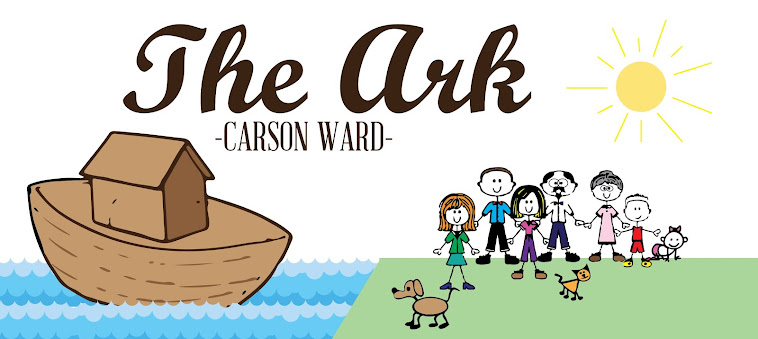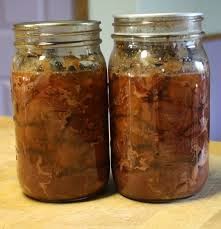Happy Valentines Day to all!
This is the month when we celebrate those we love. Why not show your family how much you love them by being better prepared for what may come your way?
Shelter in Place . . .
What does "Shelter in Place" mean to you?
Could you "Shelter in Place" if the need arose?


"Shelter in Place" means there is a chemical spill or leakage and you cannot leave your home which can last for several hours. You have to stay right where you are with what you have. A pandemic or civil unrest could also cause you to have lo "shelter in place" for days or weeks.
 Would you be able to take care of yourself and your family with what you currently have in your home?
Would you be able to take care of yourself and your family with what you currently have in your home?
Would you have enough food and drinking water to provide for your family if you had to stay in for several hours?
What if there was a pandemic, civil unrest or Martial Law, would you have enough supplies to "shelter in place" for days or weeks?
Would you have the right supplies if you had to seal up all your windows, doors and vents to avoid toxins or germs coming into your home?What if there was a pandemic, civil unrest or Martial Law, would you have enough supplies to "shelter in place" for days or weeks?
Do you have a room in your house designated for this type of event?
What would you do if you lost power, running water, sanitation and someone needed emergency medical help?
What would you do?
 Once again I am amazed at folks when they are told to hunker down for a storm that is fast approaching and they could loose power for several days, like the folks on the East Coast with the Nor Easter. How many of them were scrambling to the stores for food, drinking water, batteries for flashlights, flashlights, candles, etc? Why do we not just have these supplies on hand all the time so as not to have to panic and rush to our local stores for supplies? Why? How much easier life would be and how much less we would fear the coming storm.Why not be prepared ahead of the storms or disasters in our life?
Once again I am amazed at folks when they are told to hunker down for a storm that is fast approaching and they could loose power for several days, like the folks on the East Coast with the Nor Easter. How many of them were scrambling to the stores for food, drinking water, batteries for flashlights, flashlights, candles, etc? Why do we not just have these supplies on hand all the time so as not to have to panic and rush to our local stores for supplies? Why? How much easier life would be and how much less we would fear the coming storm.Why not be prepared ahead of the storms or disasters in our life?
New Monthly Assignment
February Monthly Assignments:
Canned and Dehydrated Meats & Fish . . .
This can be one of the more expensive items to add to your food storage.Watch for sales and check out the prices at big box stores like Costco and Sam's Club. If you are a vegetarian then add more beans and other vegetarian canned foods to your food storage. Decide on your goal, 2 weeks, 1 month, 3 months, 6 months, a year. Work towards your goal. If you cannot achieve it in a month, then continue to add to your meat, chicken, turkey, pork, ham and fish food storage, a little at a time is better than not at all.
Remember, the success of any food storage is keep all food items in a cook, dry, dark place with the temperature below 70 degrees. The higher the temperature the less storage time you have and the nutritional value starts to diminish. Also, rotate, rotate, rotate your food storage. Most canned foods are alright for a few months after the expiration date as long as the can is not bubbled, dented and has been properly stored.
 Add only those types of meat products your family will eat, beef, pork, chicken, turkey, ham, tuna, Salmon, etc. I purchase canned chicken, roast beef and tuna at Costco. The chicken and roast beef come with 6 cans, 12.5 oz cans packed in water. The tuna comes with 12 cans, 7 oz cans packed in water. I rotate these products by making chicken, roast beef and tuna sandwiches, casseroles and soup (not the tuna) from them . Do not forget canned chili (without or with beans) and stews.
Add only those types of meat products your family will eat, beef, pork, chicken, turkey, ham, tuna, Salmon, etc. I purchase canned chicken, roast beef and tuna at Costco. The chicken and roast beef come with 6 cans, 12.5 oz cans packed in water. The tuna comes with 12 cans, 7 oz cans packed in water. I rotate these products by making chicken, roast beef and tuna sandwiches, casseroles and soup (not the tuna) from them . Do not forget canned chili (without or with beans) and stews. Another way to store meats and fish for long term storage is to purchase dehydrated meats and fish. These are more expensive but worth having some for your long term storage. Watch for sales. I find emergencyessenitals.com has the best prices, especially when on sale. They have chicken, turkey, beef and pork in the ground form or small pieces. They also have fish products. Just remember, when you store dehydrated or freeze-dried products you need to store extra water to rehydrate them.
I have not tried this yet but I have seen it done and really want to try it. You will need a pressure canner. The beef, chicken and turkey are placed in the Mason Jars raw and cooked in the pressure canner. Rotate by using in your daily cooking. Remember, keep in a cool, dry, dark place where the temperature is less than 70 degrees. Ball has a great website that shows different types of canning and answers to most of your questions. Click here to view their website. Click on the videos below to watch the demonstrations. It may be better to watch the second one first.
February Monthly Emergency Preparedness Assignment
Inventorying, Organizing, Assessing, Replacing, and Purchasing Emergency Equipment and Supplies . . .
 This is a great time of the year to inventory all your emergency equipment and supplies, organize them into groups (like lighting, cooking equipment and fuel, shelter, etc.), assessing what you have and what you still need, replacing and repairing any broken items, and purchasing items you still need. Make sure all cooking fuels are not leaking, stored safely and replace as needed.You should have at least one item in each emergency preparedness category. Keep a notebook of your supplies, what needs replaced or repaired and what you still need. Set goals to accomplish the needed task. Set up certain areas in your garage, attic, basement or backyard storage shed and organize your supplies together. This is a great family weekend project.
This is a great time of the year to inventory all your emergency equipment and supplies, organize them into groups (like lighting, cooking equipment and fuel, shelter, etc.), assessing what you have and what you still need, replacing and repairing any broken items, and purchasing items you still need. Make sure all cooking fuels are not leaking, stored safely and replace as needed.You should have at least one item in each emergency preparedness category. Keep a notebook of your supplies, what needs replaced or repaired and what you still need. Set goals to accomplish the needed task. Set up certain areas in your garage, attic, basement or backyard storage shed and organize your supplies together. This is a great family weekend project. Emergency Preparedness Ideas
What things do you need to "Shelter in Place"?

Click here and here to learn more about "Sheltering in Place" from Homeland Security and CDC Emergency Preparedness. Other websites may give you more information.
Comments: We love to hear from you. We all learn from each others experiences and knowledge. Please share your comments below. Thank you.





















